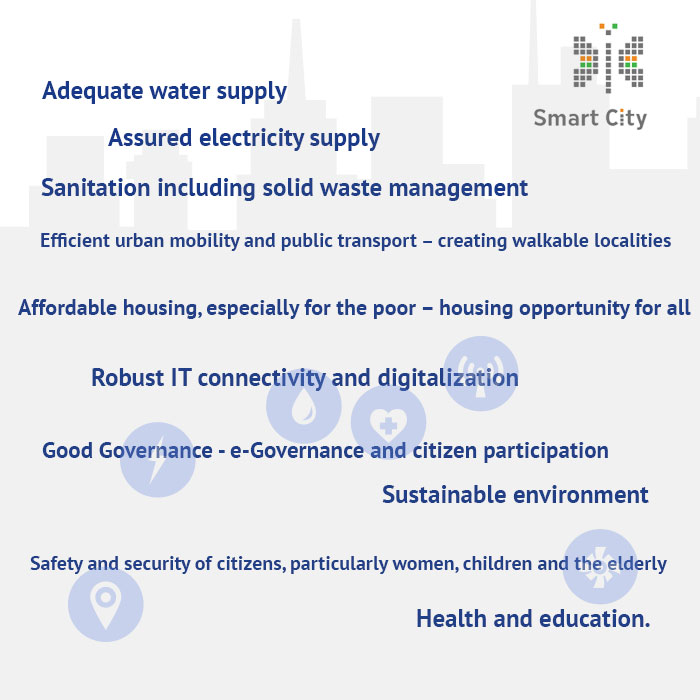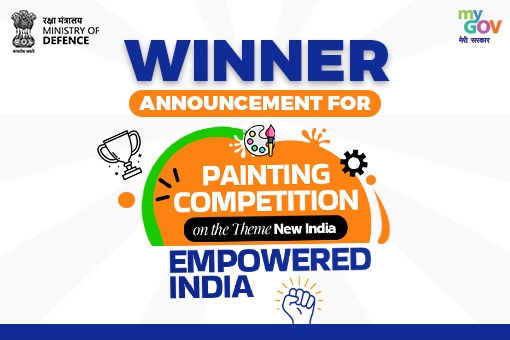The Idea behind the buzz of Indian #SmartCity

Indian urbanization level amongst comparable countries is one of the lowest in the world. At the same time it is a fact that Indian cities are growing at a rate that outpaces our population. At present 31.75% of India’s population lives in cities and approximately 60% of GDP of the country is derived from the Indian urban economy. With increasing urbanization, urban areas are expected to house 40% of India’s population and contribute 75% of India’s GDP by 2030. So we can say that India is at a cusp of urbanization.
Of late, a paradigm change in the national thinking is reflected in Government’s priorities. Urbanisation is not only inevitable but also an opportunity for leveraging India’s demographic dividend. This requires comprehensive development of physical, institutional, social and economic infrastructure of cities. Development of ‘’Smart Cities’’ is a step in that direction.
Smart City – Transforming Nation
There is no universally accepted definition of a Smart City. It means different things to different people. The conceptualisation of Smart City, therefore, varies from city to city and country to country, depending on the level of development, willingness to change and reform, resources and aspirations of the city residents. Even in India, there is no one way of defining a Smart City. However, to guide cities some definitional boundaries has been defined. The core elements in a smart city include:-

Apart from above some other typical features of Smart City are –
• Promoting mixed land use in area-based developments
• Preserving and developing open spaces
• Promoting a variety of transport options — Transit Oriented Development (TOD), public transport and last mile para-transport connectivity
• Applying Smart Solutions to infrastructure and services in area-based development in order to make them better.
Implementation Strategy
Implementation Strategy under Smart Cities Mission is broadly two pronged namely Area Based Development and Pan City Development. The components of Area Based Development are city improvement (retrofitting), city renewal (redevelopment) and city extension (greenfield development) and under Pan-city initiative Smart Solutions are applied covering larger parts of the city. Retrofitting will introduce planning in an existing built-up area to achieve Smart City objectives, along with other objectives, to make the existing area more efficient and liveable. Redevelopment will effect a replacement of the existing built-up environment and enable co-creation of a new layout with enhanced infrastructure using mixed land use and increased density. Greenfield development will introduce most of the Smart Solutions in a previously vacant area (more than 250 acres) using innovative planning, plan financing and plan implementation tools (e.g. land pooling/ land reconstitution) with provision for affordable housing, especially for the poor.
Moving away from ‘’one-size-fits-all” practice Smart City Mission put cities in driver’s seat. With the vision that ‘’local problems have local solutions’’ Smart Cities are selected by competitive selection process on the basis of the Smart City Proposals (SCP) submitted by individual cities. SCPs employ extensive community consultations to build on a city’s strengths and set out key strategic priorities. Smart City Proposal (SCP) contain the vision, plan for mobilisation of resources and intended outcomes in terms of infrastructure up-gradation and smart applications.
The process of implementation starts with setting up of a SPV, Special Purpose Vehicle. The SPV is a limited company incorporated under the Companies Act, 2013 at the city-level, in which the State/UT and the ULB are the promoters having 50:50 equity shareholding. The private sector or financial institutions could be considered for taking equity stake in the SPV, provided the State/UT and the ULB together have majority shareholding and control of the SPV. The SPV plans, appraises, approves, release funds, implements, manages, operates, monitors and evaluates the Smart City development projects. The SPV may appoint Project Management Consultants (PMC) for assistance.
With respect to financing, apart from Govt. of India funds and matching contribution by the States/ULBs; funds are also expected to be mobilized from user fees, beneficiary charges, funds from other Central Government schemes like Swachh Bharat Mission, AMRUT, National Heritage City Development and Augmentation Yojana (HRIDAY), Innovative financing mechanisms such as municipal bonds with credit rating of ULBs, Value Capture Financing and from private sector through Public Private Partnership.
Mission so far
Over the period of almost two years now Smart City Mission has picked up pace. A total investment of Rs.1,32,197 cr has been approved under the Smart City Plans of 60 cities during January-December, 2016. 87 projects in 19 cities worth Rs.5,768 cr are under execution. Another 80 projects with an investment of Rs.4,448 cr are close to being awarded for implementation. Among major achievements, 50 cities have formed SPVs. 20 of them have appointed Project Management Consultants (PMC), out of 20 Round 1 cities, 8 cities have already issued tender for Integrated Command & Control Centre. Apart from this, number of projects of Smart Roads, Smart Solar implementation, Public Bicycle Sharing System, Adaptive Traffic Management, Smart Multi Level Car Parking, Intelligent Street Pole, Smart Health Platform etc. are at different stage of implementation in various cities.
One of the major achievements in the direction of implementing Reform Agenda is that 89 smart cities have undertaken credit rating exercise with 16 of them completing the process. 12 cities among these have achieved remarkable credit rating:- Pune AA, Ahmedabad and New Delhi Municipal Council AA-, Visakhapatnam A, Jaipur A-, Udaipur, Kota and Ajmer BBB+, Tirupati, Kakinada and Bhubaneswar BBB and Roukela BB+.
Comprehensive development of Urban India will take place by converging Smart City Mission with other sectoral schemes of the Government like AMRUT, Swachh Bharat Mission (SBM), HRIDAY, Digital India, Skill Development, Housing for All, Make in India etc. which also focusses on physical, institutional, social and economic infrastructure of India Cities. Smart Cities Mission is a Long Term Transformative process with focus on balancing short term needs with long-term outcomes.





